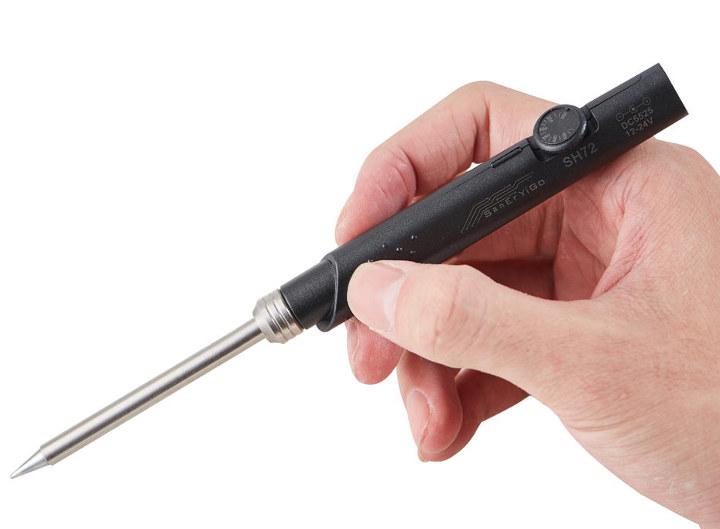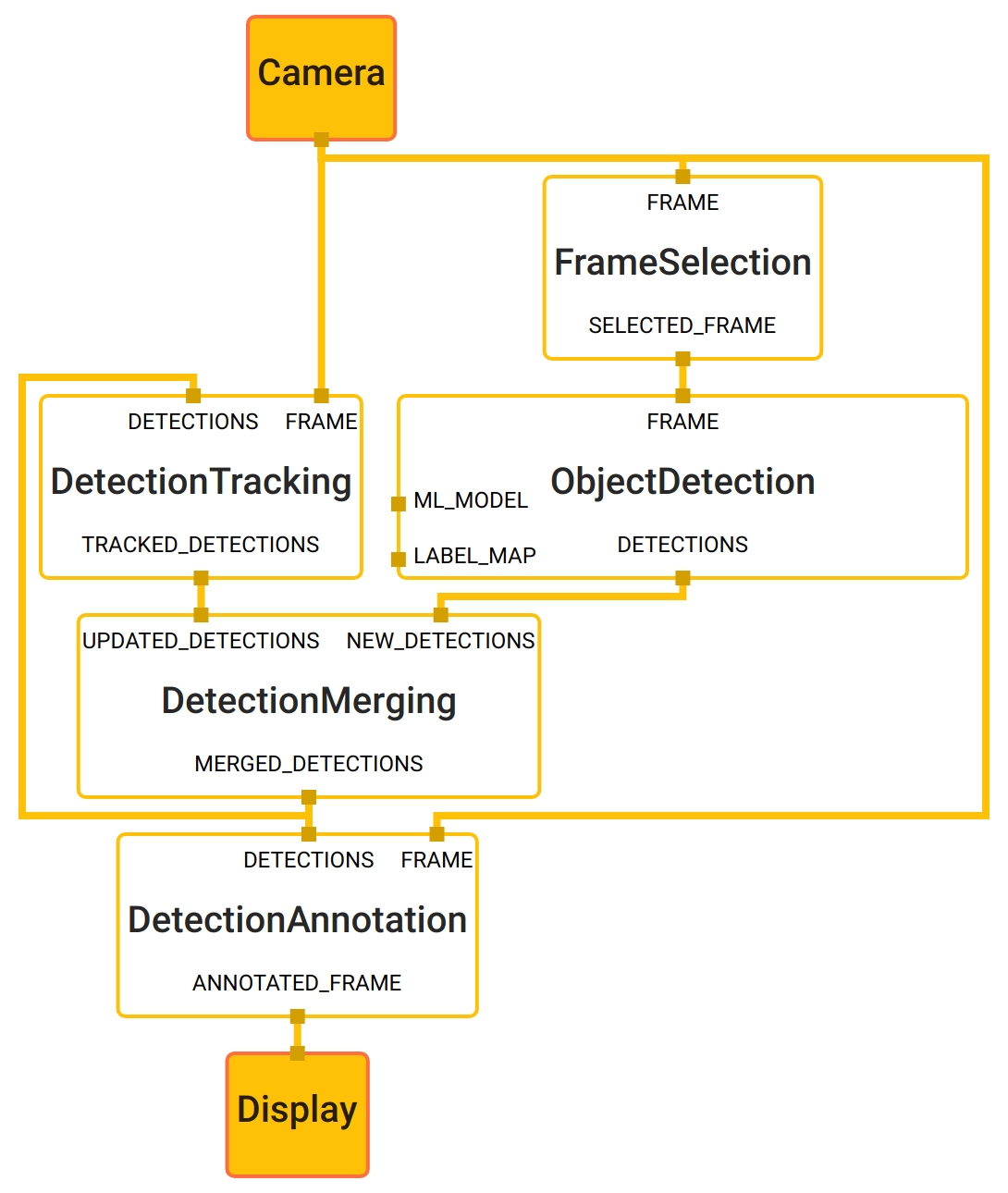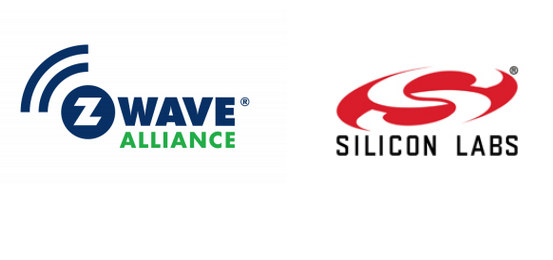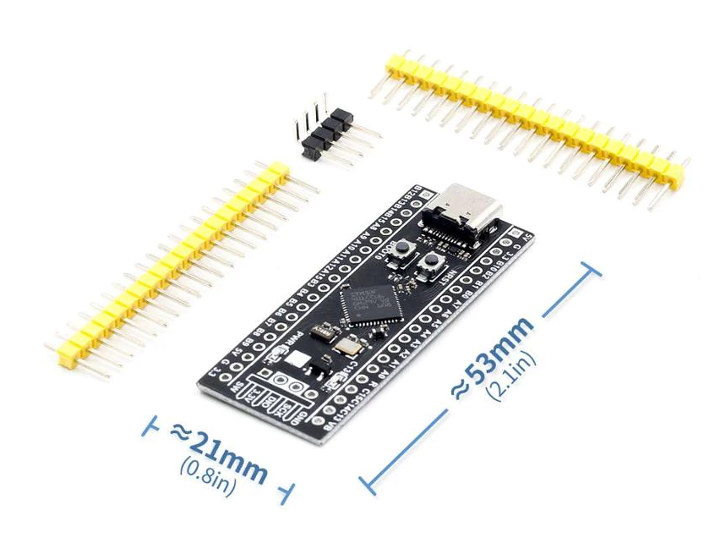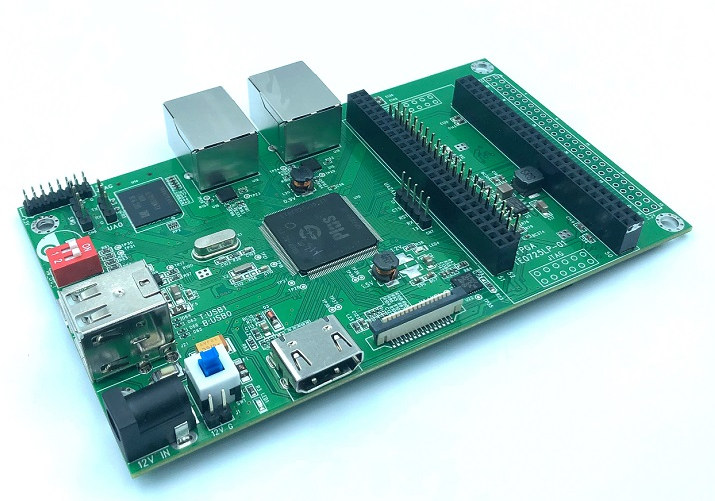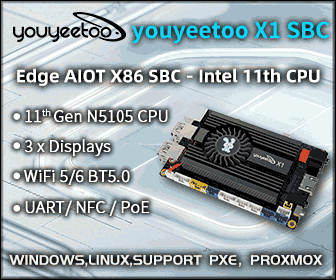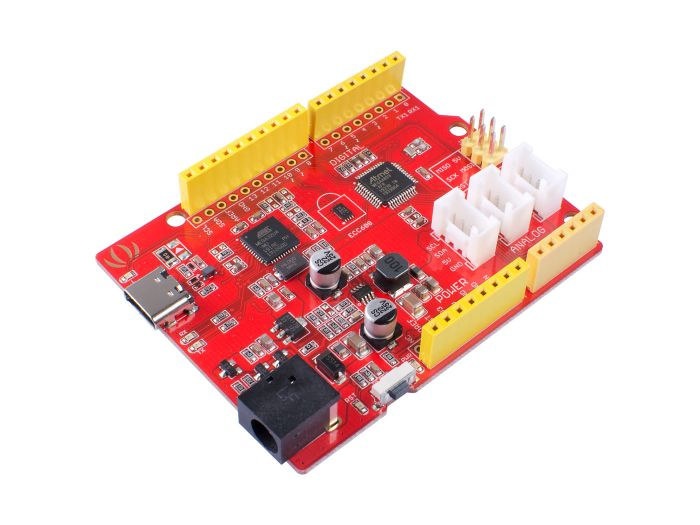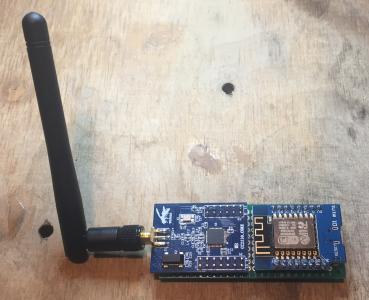TS100 is a popular soldering iron in the shape of a pen, and whose temperature is controlled by an STM32 microcontroller. Parameters such as temperature, temperature steps, sleep time and others can be setup over USB, and the soldering is powered by a standard 19V power supply often used with laptops. TS100 sells for around $50, while the more recent USB-C powered version (TS80) sells for a little over $70. But a new model that looks similar to TS100 minus the OLED display is now selling for around $10 on Banggood. SH72 soldering iron features and specifications: Temperature range – 220-400℃ Temperature control knob Available/supported tips – SH-B2/SH-BC2/SH-C4/SH-D24/SH-I/SH-K/SH-Ku (Hakko types) Power Supply 12-24V DC input up to 65 Watts via 5.5 x 2.5 mm barrel jack Modes of operation – 12V >=1.5A (18W); 16V >=2A (32W); 19V >=2.1A (40W); 24V >=2.7A (65W) Dimensions Control handle – 110 x 16 x […]
MediaPipe is an Open Source Perception Pipeline Framework Developed by Google
MediaPipe is an open-source perception pipeline framework introduced by Google, which helps to build multi-modal machine learning pipelines. A developer can build a prototype, without really getting into writing machine learning algorithms and models, by using existing components. This framework can be used for various vision & media processing applications (especially in VR) such as Object Detection, Face Detection, Hand Tacking, Multi-hand Tracking and Hair Segmentation. MediaPipe supports various hardware and operating system platforms such as Android, iOS & Linux by offering API’s in C++, Java, Objective-c, etc. And this framework also capable of utilizing GPU resources. MediaPipe Components The framework is comprised of three major components A framework for inference from the pipeline data Tools for evaluation And a collection of reusable inference and processing components It follows the approach of Graph-based frameworks in OpenCV and all processing happens with the context of the Graph. The Graph contains a […]
Some Interesting Talks from FOSDEM 2020 Schedule
We wrote about IoT devroom call for proposals for FOSDEM 2020 a little while ago, and as the free open-source developer meetup is getting closer, FOSDEM 2020 organizers released the schedule. So I’ll look at some of the talks in the relevant devrooms such as the Internet of Things, hardware enablement, Embedded, Mobile and Automotive, as well as RISC-V and others to compose my own little virtual schedule for the 2-day event. Saturday, February 1 10:30 – 10:50 – How lowRISC made its Ibex RISC-V CPU core faster – Using open source tools to improve an open-source core – by Greg Chadwick Ibex implements RISC-V 32-bit I/E MC M-Mode, U-Mode, and PMP. It uses an in-order 2 stage pipe and is best suited for area and power-sensitive rather than high-performance applications. However, there is scope for meaningful performance gains without major impact to power or area. This talk describes work […]
Z-Wave Open Standard to Enable Third-Party Z-Wave Silicon and Stack Suppliers
Roughly one year ago, Silicon Labs released a publicly available Z-Wave SDK and a Raspberry Pi 3 Image to make it easier to work with the wireless protocol targetting home automation. But Z-Wave specifications were still closed, which meant Z-Wave chips could only be purchased from Silicon Labs, a bit like LoRa chip can only be purchased from Semtech. The advantage of being closed is that you’re the only supplier, but this will limit market adoption, and customers may be wary of relying on a single partner for their long term plans. That must be why The Z-Wave Alliance and Silicon Labs have now decided to open Z-Wave specifications to Silicon and Stack suppliers. That paves the way to third-party software platforms and Z-Wave radios from some of the 700+ companies which are members of the Z-Wave Alliance. The Z-Wave specification release is scheduled for H2 2020, and will include […]
$3 STM32 “Black Pill” Board Features STM32F4 Cortex-M4 MCU, Optional SPI Flash
STM32 “Blue Pill” is a popular and cheap (>$2) development board based on STMicro STM32F103C8T6 Arm Cortex-M3 microcontroller and programmable with the Arduino IDE. I’ve just been informed that the board got an upgrade of sorts with a “Blue Pill 2” board featuring either STM32F401CCU6 or STM32F411CEU6 Arm Cortex-M4F microcontroller, and a USB Type-C port for power and programming. It’s black, so instead, I’ll call Black Bill as some others appear to do. Specifications for the Blue Pill & Black Pill boards (new features in bold): MCU (one of the other) STMicro STM32F103C8T6 ARM Cortex-M3 MCU @ 72 MHz with 64KB flash memory, 20KB SRAM. STMicro STM32F401CCU6 Arm Cortex-M4F MCU @ 84 MHz with 256 KB flash, 64KB SRAM STMicro STM32F411CEU6 Arm Cortex-M4F MCU @ 100 MHz with 512KB flash, 128KB SRAM Storage – Footprint for SPI flash USB Blue Pill – 1x micro USB port for power and programming […]
Banana Pi BPI-F2S Industrial SBC Launched for $58 with Linux 4.19 based Debian or Fedora OS
Last month we covered Banana Pi BPI-F2S single board computer (SBC) for industrial, IoT, and smart audio application that was powered by the intriguing SunPlus SP7021 “Plus1” processor featuring four Cortex-A7 cores, one ARM9 ARM9 real-time core, and one 8051 I/O controller core, as well as up to 512MB built-in DDR3 RAM. At the time, the board was not available, and we had limited information about software support, except the company would provide a Yocto-based Linux distribution. The good news is that you can now buy Banana Pi BPI-F2S industrial SBC on Aliexpress for $58 and Taobao for 390 RMB, and the company released source code and OS images for the board. Here’s a reminder of Banana Pi BPI-F2S specifications: SoC – Sunplus SP7021 “Plus1” with a quad-core Cortex-A7 processor @ 1.0 GHz, one Arm A926 microprocessor, an 8051 core to handle I/Os, and 128MB or 512MB DDR3 DRAM. Storage […]
Seeeduino Crypto Board Combines Microchip ATmega4809 MCU and ECC608 Crypto Chip
With the advance of IoT, security has become critical since devices are often connected to the Internet. There are several ways to improve security and one of them is to implement hardware security via crypto chips. One of those chips is Microchip ECC608 (aka ATECC608A) secure element which we previously found in Linux based hardware such as USB Armory MK-II USB Linux computer, and the official Arduino Nano 33 IoT Board. Seeed Studio has now introduced a new Arduino compatible board with Microchip ECC608 crypto chip: Seeeduino Crypto board powered by a Microchip ATmega4809 8-bit AVR MCU. Seeeduino Crypto specifications: MCU – Microchip ATMEGA4809-AFR 8-bit AVR microcontroller @ 16 MHz with 48KB flash, 6,144 Bytes RAM USB – 1x USB Type-C port Expansion Arduino Uno headers with 6x analog inputs, 14x digital I/O pins, 5x PWM 2x I2C Grove headers 1x UART Grove header HW Security – Microchip ECC608 secure […]
Tasmota Open Source ESP8266 Firmware Now Supports Zigbee Connectivity
Sonoff-Tasmota is a popular open-source firmware designed to run on ESP8266 hardware for home automation projects. It was initially designed to run on devices from ITEAD Studio Sonoff family but now supports more products, boards, and modules from other brands such as Shelly, Wemos, Blitzwolf, and others. So the first news is that the project has recently been renamed from Sonoff-Tasmota to just Tasmota, and documentation has been moved from Github Wiki to Github.io. Tasmota Zigbee Support A piece of more important news is that Tasmota now supports Zigbee. More specifically, the Z2T (Zigbee to Tasmota) concept allows you to make your own Zigbee to WiFi bridge by combining Z-Stack-firmware on CC2530 and Tasmota firmware on ESP8266 / ESP82xx hardware. Basically all you need is ESP82xx hardware connected to a Texas Instruments C2530 based Zigbee device over a serial. Note that C2531 based device won’t work since they are connected […]


